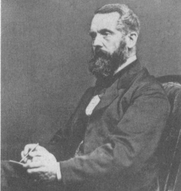 The Strand Workhouse, Cleveland Street If you walk down Cleveland Street, in the heart of the London's Fitzrovia, you come across a boarded-up old building which until 2006 housed the out-patient department of the Middlesex Hospital. Architecturally the Georgian building has little merit and its only feature is a stone relief of an old man pointing to an inscription reading: "Avoid idleness and intemperance". 150 years ago this building was the Strand Union Workhouse and those entering it were under probably no illusions as to their fate. The workhouse master, a Mr Catch, shared a close resemblance to the fictional Mr Bumble. Charles Dickens lived on Cleveland Street, which was then known as Norfolk Street, and it isn't difficult to see how the writer's inspiration for Oliver Twist probably came from his personal knowledge of the workhouse just seven doors away from his house. In the latter part of 1854 Dr Joseph Rogers was busy working as a surgeon apothecary (GP) in Soho during a cholera outbreak. A friend told him, "you will live to regret this outbreak, it will ruin the neighbourhood and your practice for many years to come.. and then you will have nothing to do". This prediction came true and the following year with his practice dwindling Dr Rogers found himself as the medical officer of the Strand Workhouse. In Victorian Britain poverty was rooted in illness and old-age and conditions in the Strand Workhouse were terrible. The beds were so close to each other that it was only possible to get out at the end. The infectious sick were housed with the non-infected in an atmosphere of poor ventilation, lack of sanitation, poor nutrition and supervised by drunken pauper nurses who were without qualification. In this atmosphere suffering, disease and despair abounded. Rogers appealed to the Guardians to remove the laundry to the rear yard of the workhouse, enlarge the cellars to provide better accommodation for sick children and he change the gruel-only diet fed to single mothers for nine days after giving birth. One of Roger's most difficult problems was the workhouse master, George Catch. He and his wife treated the inmates badly and also obstructed most of his efforts to improve conditions. Eventually Rogers finally managed to secure his dismissal on the ground of extreme neglect which resulted in some relief of the inmates who were apparently jubilant at his departure. Following the Crimean war there was interest in sanitary problems and the observation that paupers were more likely to die if they entered the workhouse led, Thomas Wakley, the editor of the Lancet established a special commission to investigate the sanitary state of workhouses and the care of the sick poor. In 1865 they visited the Strand Workhouse commenting that it had but one redeeming feature "the care and skill of the surgeon and of the master and matron, and the improvements in ward management which the zeal of these officers and the benevolence of the lady visitors have effected. They were less complimentary on the environment stating that the buildings are atrociously bad as a residence for sick persons, and they are incapable of real improvement by any cobbling process. Joseph Rogers founded the Association for the Improvement of London Workhouse Infirmaries and by 1867 the Lancet campaign had borne fruit with the passage of the Metropolitan Poor Act which provided new infirmaries separate from workhouses. During the next decade some 20 new hospitals were built in London providing an extra 10,000 beds.
References
http://www.workhouses.org.uk/Strand/ Richardson, R & Hurwitz B. Dr Joseph Rogers and the reform of workhouse medicine BMJ 299 1507 Richardson, R. Dickens and the Workhouse: Oliver Twist and the London Poor. Oxford University Press. http://www.clevelandstreetworkhouse.org Rogers, J. Reminiscences of a Workhouse Medical Officer
0 Comments
|
Dr Richard BogleThe opinions expressed in this blog are strictly those of the author and should not be construed as the opinion or policy of my employers nor recommendations for your care or anyone else's. Always seek professional guidance instead. Archives
August 2023
Categories
All
|

 RSS Feed
RSS Feed

